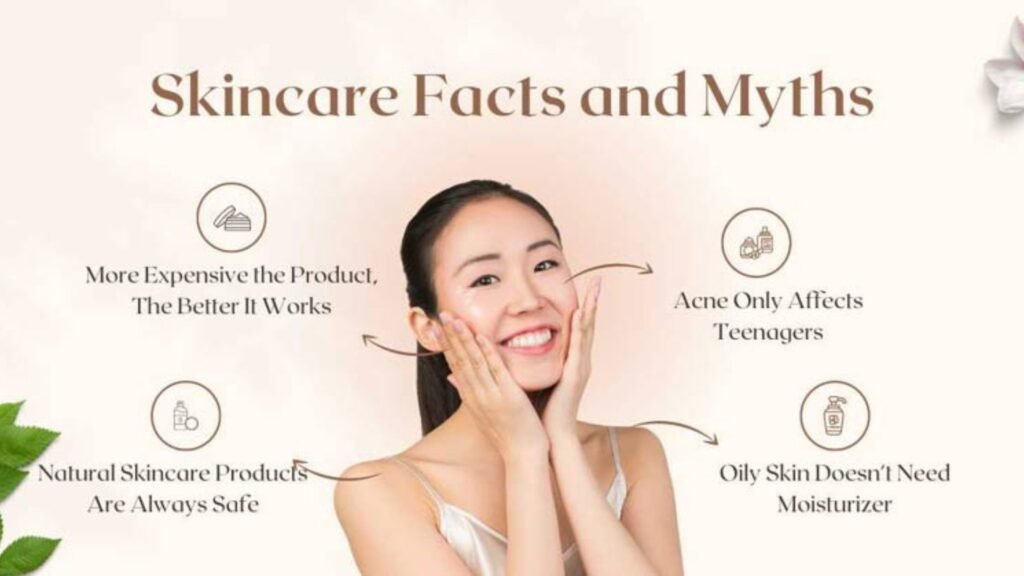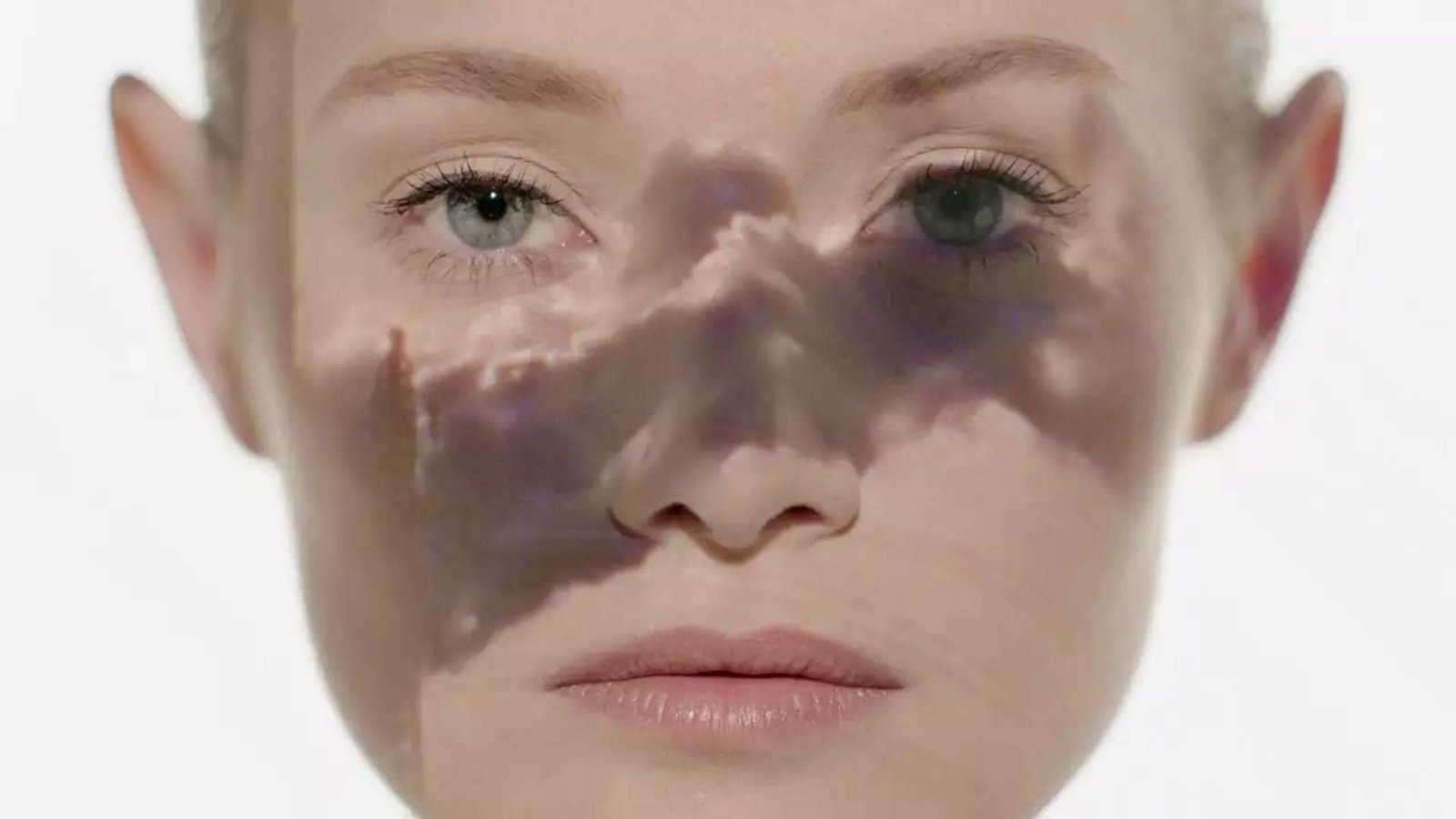In the world of skincare, misinformation and myths can lead to confusion and ineffective routines. It’s essential to distinguish between fact and fiction to create an effective skincare regimen. In this article, we’ll debunk some common skincare myths and provide you with accurate information to help you achieve healthy, radiant skin.

Myth: You Don’t Need Sunscreen on Cloudy Days
One of the most persistent myths is that sunscreen is unnecessary on cloudy days. However, UV rays can penetrate clouds and still cause skin damage:
- UV Rays Still Affect Your Skin: Up to 80% of UV rays can reach your skin even when it’s cloudy. Consistent sunscreen use is crucial, regardless of weather conditions.
- Daily Protection is Key: To protect your skin from premature aging and skin cancer, apply sunscreen daily. Choose a broad-spectrum sunscreen with at least SPF 30 and reapply as needed.
Myth: Expensive Products Are Always Better
Many believe that higher-priced skincare products are more effective. However, the cost of a product does not always correlate with its quality:
- Ingredients Matter More: Effective skincare is more about the quality and concentration of ingredients than the price. Look for products with proven ingredients like hyaluronic acid, Vitamin C, and retinoids.
- Budget Options Can Work: Many affordable skincare products can deliver excellent results. It’s important to choose products based on their ingredient list and suitability for your skin type rather than their price tag.
Myth: You Should Skip Moisturizer if You Have Oily Skin
A common misconception is that oily skin doesn’t need moisturizer. In reality, all skin types, including oily skin, benefit from hydration:
- Moisturizers Balance Oil Production: Using a lightweight, non-comedogenic moisturizer can help balance oil production and prevent your skin from becoming overly greasy.
- Hydration is Essential: Proper hydration supports your skin’s barrier function and helps maintain overall skin health. Even oily skin needs moisture to stay balanced and healthy.
Myth: You Can Shrink Your Pores
The idea that you can permanently shrink the size of your pores is a myth. While you can’t change the size of your pores, you can improve their appearance:
- Pore Size is Genetic: Your pore size is largely determined by genetics, and while you can’t change it, you can minimize their appearance with proper skincare.
- Use Pore-Minimizing Products: Products containing ingredients like salicylic acid, niacinamide, and clay can help reduce the appearance of pores by keeping them clear and less visible.
Myth: Natural Products Are Always Safe and Effective
While natural products are often promoted as safer, they aren’t always the best option for every skin type:
- Natural Doesn’t Equal Gentle: Some natural ingredients can cause irritation or allergic reactions. For example, essential oils, while natural, can be highly irritating to sensitive skin.
- Effectiveness Varies: The effectiveness of natural products can vary, and they may not always provide the same benefits as scientifically formulated products. Always check ingredient lists and consider patch testing new products.
Myth: You Only Need to Cleanse Once a Day
Some people believe that cleansing only needs to be done once a day. However, proper cleansing is crucial for maintaining healthy skin:
- Cleanse Twice Daily: To remove dirt, oil, and impurities, it’s recommended to cleanse your face both in the morning and before bed. This helps prevent clogged pores and breakouts.
- Adjust for Your Skin Type: If you have particularly oily or acne-prone skin, you might need to adjust your cleansing routine. Choose a gentle cleanser that suits your skin type.
Myth: You Don’t Need to Exfoliate if You Have Sensitive Skin
Exfoliation is often considered too harsh for sensitive skin, but gentle exfoliation can be beneficial:
- Gentle Exfoliation is Helpful: Regular exfoliation helps remove dead skin cells and can improve skin texture. For sensitive skin, choose a mild exfoliant, such as those with enzymatic or chemical exfoliants rather than physical scrubs.
- Frequency Matters: Exfoliate 1-2 times a week to avoid over-exfoliation, which can irritate sensitive skin. Listen to your skin and adjust the frequency as needed.
Myth: You Can Get Rid of Acne by Drying Out Your Skin
Drying out your skin is not a healthy or effective way to treat acne. In fact, it can make acne worse:
- Dry Skin Can Increase Oil Production: Stripping your skin of moisture can lead to increased oil production, which may worsen acne. Balanced hydration is essential for healthy skin.
- Use Acne-Fighting Ingredients Wisely: Instead of drying out your skin, use acne treatments containing ingredients like salicylic acid or benzoyl peroxide that target the root causes of acne without excessive dryness.
Conclusion
In conclusion, debunking common skincare myths is essential for achieving healthy, effective skincare results. By understanding the truth behind these misconceptions, you can make informed decisions about your skincare routine. Incorporate accurate information into your regimen, choose products based on their ingredients and suitability for your skin type, and practice consistent skincare habits to maintain a healthy, glowing complexion.




